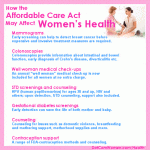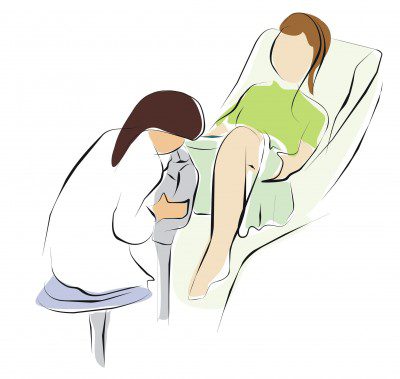How the Affordable Care Act May Affect Women’s Health
The Patient Protection and Affordable Care Act has been a topic of continual discussion and debate since it was passed in 2010 by the Obama administration. As with any program that proposes sweeping change and bears the potential to affect millions of people, there is much to learn and adjust to as the various phases of the Act continue to take effect.

In certain ways, such as when it comes to access to a range of preventative care services, all eligible persons are affected equally. However, certain “special interest groups” (including children and the elderly) also receive special focus under certain provisions of the Affordable Care Act. Women are also considered a special interest group when it comes to eligibility for receiving preventive medical care. As such, it is important for women of any age to learn more about provisions of the Act that specifically relate to their health care needs.
About the Affordable Care Act
This Act, which is now commonly abbreviated as the PPACA (Patient Protection and Affordable Care Act), has already begun to take effect. Passed in March of 2010, it is considered the most comprehensive regulatory measure since 1965, when Medicare and Medicaid were officially passed into law. In the wake of the Act’s passage, any student pursuing an online public health degree, medical degree, law degree or similar advanced degree now has access to a growing number of exciting career opportunities in policy reform and implementation, public health education, nursing and the medical field as a whole. In similar fashion to the 1965 Medicare/Medicaid legislation, the 2010 Act aims to improve access to care for all eligible Americans. Specific goals under the Act include:
- Ensuring all eligible Americans have health insurance. The Act aims to make carrying health insurance mandatory but not financially burdensome for all eligible Americans.
- Increasing the affordability of health insurance. The Act aims to make health insurance affordable and accessible to all eligible Americans.
- Reducing the overall costs of providing health care. The Act aims to standardize health care costs to reduce the overall costs of providing health care nationwide.
- Standardizing provisions of health insurance policies. The Act aims to create more uniform health insurance policies at various price points.
- Improving health care results.The Act aims to use data from plan implementation to continue to improve the results of health care.
- Streamline health care delivery services. The Act aims to make it easier for all eligible Americans to make use of their health insurance benefits.
The Act and Women’s Health


As a special interest group, women receive particular attention under certain provisions of the Affordable Care Act. This is because women are often faced with additional health care needs at important phases of life such as during pregnancy and menopause. The Act mandates that all insurance policies must provide certain preventative services for all covered individuals, and additional preventative services for women, without charging an additional deductible, copay or co-insurance charge. Under the Act, women are now eligible to receive these preventative services at no additional charge under any approved insurance plan.
- Mammograms. Early screening can help to detect breast cancer before expensive and invasive treatment measures are required.
- Colonoscopies. Colonoscopies can provide life-saving information about intestinal and bowel function, including early diagnosis of Crohn’s disease, diverticulitis and more.
- Well woman medical check-ups. An annual “well woman” medical check-up is now included for all women at no extra charge under this provision of the Act.
- STD screenings and counseling. Sexually transmitted diseases can impact both a woman and her baby. Preventative screenings include HPV (human papillomavirus) for ages 30 and up, HIV and others; upon detection, STD counseling and support is also included.
- Gestational diabetes screenings.Early detection can save the life of both mother and baby.
- Counseling. Counseling for various life and motherhood issues, such as domestic violence, breastfeeding and mothering support, motherhood supplies and more, is now covered under the Act.
- Contraception support. Women who would like to take advantage of this option are now provided with a range of FDA-contraception methods and counseling.
This basic overview can help women learn more about their eligibility for specific preventative health care benefits under the Affordable Care Act.
About the Author: Glenda Johnson earned her degree in public health last year. She works in the field of healthcare policy and reform with a special interest in women’s health issues.



